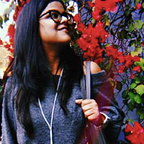W 33 — Instagram for kids (probable Nightmare for parents)
Mine was probably the last generation to have a childhood with little encroachment from the social media gala. I made my Instagram account six years ago when I was in grade 10. My feed was as random as my newly painted nails to dozens of Taylor Swift snaps with umpteen number of hashtags. When I was in grade 12, the scenario advanced. We started noticing each other’s likes, post aesthetics and wondered how celebrities looked flawless in all their pictures. We were little aware of filters and the boon called Photoshop back then, and this innocence mixed with puberty was the perfect recipe for teenage insecurities. Keeping in mind the host of influencers and propaganda we have on social media sites today, I am already concerned for the children who will now be able to access Instagram. Facebook recently announced the launch of an Instagram for kids under the age of 13. Their rationale is to nurture talent from an early age.
From the personal anecdote I shared above, it is evident that my social media journey started from posting pictures a few times when I was a teen, which later tuned into a habit when I became a young adult. It is this conditioning technique which platforms like Facebook and YouTube are using to cultivate a habit of social media consumption since childhood among users. In a way it is great that young users will be able to share their talents and connect with the world from an early age. But in most cases, it is found out that it is the parents that monetize their child’s talents and capitalize on their hard work. When we drew, sang or clicked pictures when we were young, we mostly did it for own pleasure, or at the most to seek validation from our peers and parents. Instagram will expose kids to a whole new level of rat race running on likes, views and shares. Self-expression in such a case is trumped by self-capitalization and validation. Sites like Instagram are filled with toxic standards of beauty, success and lifestyles. Thus, it is unwise to expose impressionable minds to the breeding grounds of such unrealistic standards.
Adding on, we are in a way giving consent to Facebook to harvest data points off our little ones from a young age. The endless number of data privacy charges on Facebook speak for themselves. When Adam Mosseri, the Head of Instagram posted a picture with his family, blurring the faces of his kids, an array of questions regarding how other people are supposed to feel comfortable having their kids use his platform surfaced.
On the flip side, we will be naïve to believe that children do not use the platform already. They are more likely to fall prey to predators and scammers online while using the adult exclusive platform. Thus, in a way it is helpful to have a regulated platform reserved primarily for children, protecting them from adult intrusion. It is only after the launch of this platform will we be able to uncover the true beauty of this beast.
